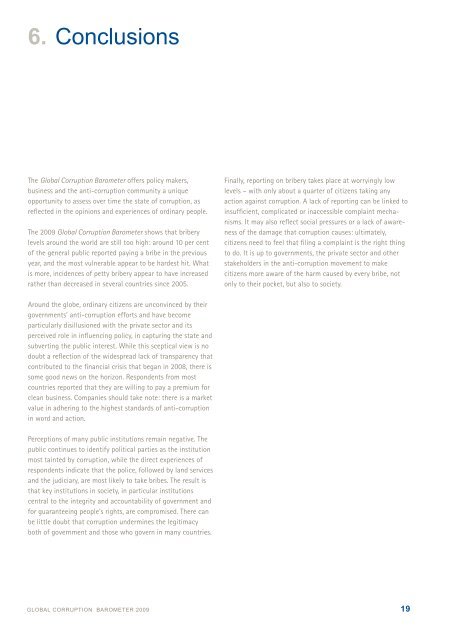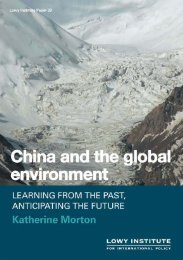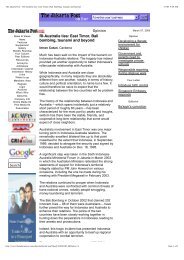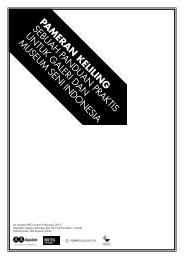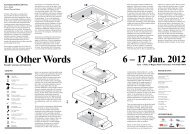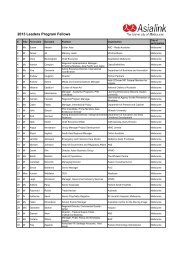GLOBAL CORRUPTION BAROMETER - Asialink
GLOBAL CORRUPTION BAROMETER - Asialink
GLOBAL CORRUPTION BAROMETER - Asialink
Create successful ePaper yourself
Turn your PDF publications into a flip-book with our unique Google optimized e-Paper software.
6. Conclusions<br />
The Global Corruption Barometer offers policy makers,<br />
business and the anti-corruption community a unique<br />
opportunity to assess over time the state of corruption, as<br />
reflected in the opinions and experiences of ordinary people.<br />
The 2009 Global Corruption Barometer shows that bribery<br />
levels around the world are still too high: around 10 per cent<br />
of the general public reported paying a bribe in the previous<br />
year, and the most vulnerable appear to be hardest hit. What<br />
is more, incidences of petty bribery appear to have increased<br />
rather than decreased in several countries since 2005.<br />
Finally, reporting on bribery takes place at worryingly low<br />
levels – with only about a quarter of citizens taking any<br />
action against corruption. A lack of reporting can be linked to<br />
insufficient, complicated or inaccessible complaint mechanisms.<br />
It may also reflect social pressures or a lack of awareness<br />
of the damage that corruption causes: ultimately,<br />
citizens need to feel that filing a complaint is the right thing<br />
to do. It is up to governments, the private sector and other<br />
stakeholders in the anti-corruption movement to make<br />
citizens more aware of the harm caused by every bribe, not<br />
only to their pocket, but also to society.<br />
Around the globe, ordinary citizens are unconvinced by their<br />
governments’ anti-corruption efforts and have become<br />
particularly disillusioned with the private sector and its<br />
perceived role in influencing policy, in capturing the state and<br />
subverting the public interest. While this sceptical view is no<br />
doubt a reflection of the widespread lack of transparency that<br />
contributed to the financial crisis that began in 2008, there is<br />
some good news on the horizon. Respondents from most<br />
countries reported that they are willing to pay a premium for<br />
clean business. Companies should take note: there is a market<br />
value in adhering to the highest standards of anti-corruption<br />
in word and action.<br />
Perceptions of many public institutions remain negative. The<br />
public continues to identify political parties as the institution<br />
most tainted by corruption, while the direct experiences of<br />
respondents indicate that the police, followed by land services<br />
and the judiciary, are most likely to take bribes. The result is<br />
that key institutions in society, in particular institutions<br />
central to the integrity and accountability of government and<br />
for guaranteeing people’s rights, are compromised. There can<br />
be little doubt that corruption undermines the legitimacy<br />
both of government and those who govern in many countries.<br />
<strong>GLOBAL</strong> <strong>CORRUPTION</strong> <strong>BAROMETER</strong> 2009 19


